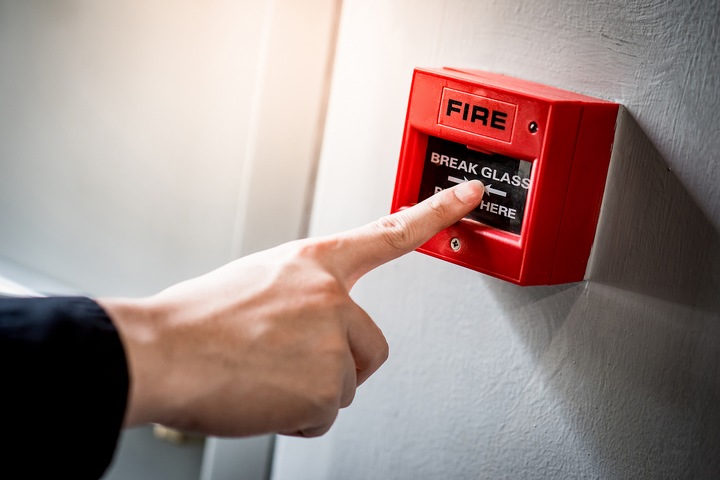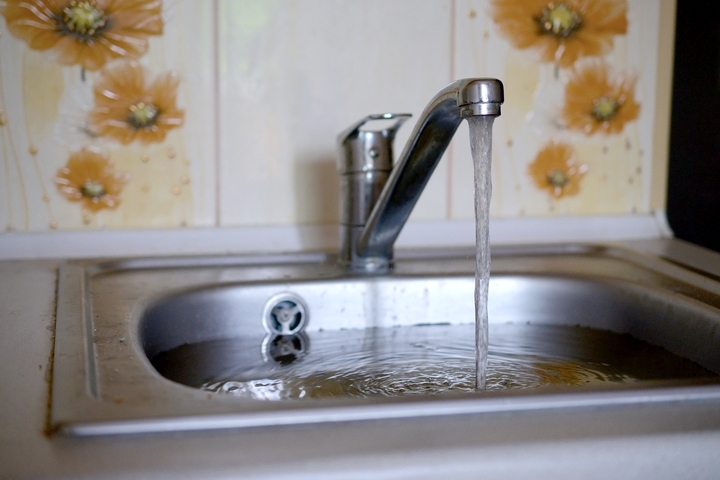A dog’s pregnancy lasts approximately 63 days. The birthing process is called whelping. Ensure they’re inspected by at least three weeks before whelping to confirm everyone’s healthy. It can seem intimidating to take care of a pregnant dog as a pet owner. When bringing new puppies into the world, they will need lots of attention and care.
A dog owner’s responsibility is to ensure the animal is comfortable throughout her pregnancy. Taking care of a pregnant dog requires lots of diligence. You need to monitor the animal’s overall health. In addition, you must ensure they’re getting the right nutrients from their diet.
Check out this in-depth guide on how to take care of a pregnant dog.
1. Show your pregnant dog more affection.
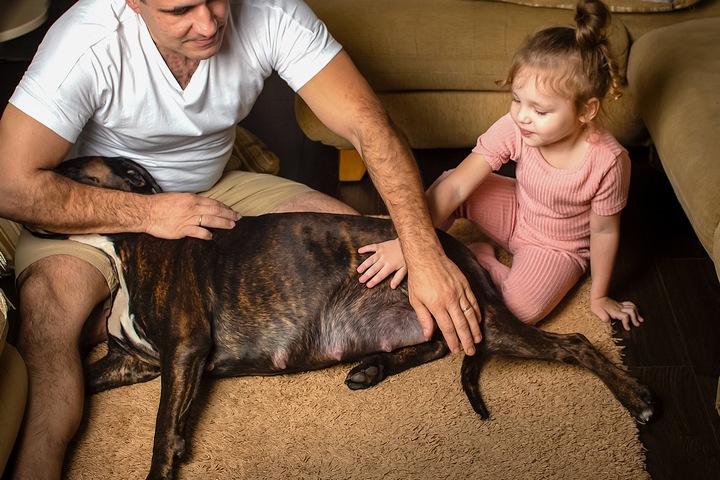
Pregnancy in dogs typically will mean they require more affection and attention. As a dog parent, try to pet them and keep them company. Some pregnancies are more difficult than others.
2. Check for behaviour changes in a pregnant dog.
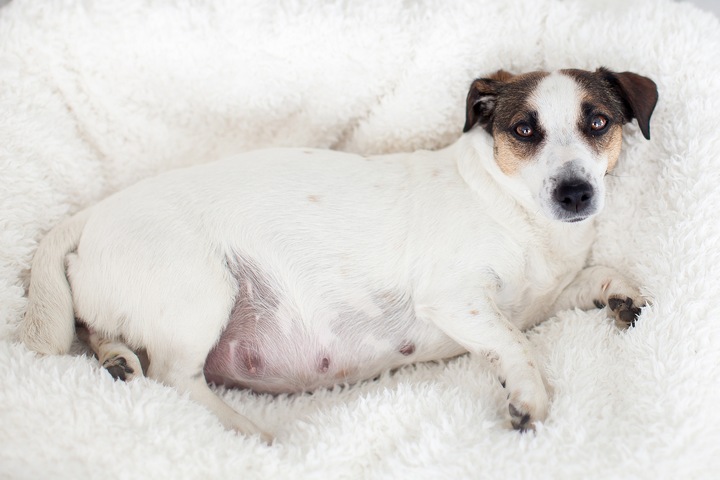
Like a pregnant human being, a pregnant dog goes through lots of changes. From their hormones firing off in new ways to changes in weight, appetite, and behaviour, as a pet owner, ensure you are accommodating and aware that your dog may alter their usual behaviour. Regular vet appointments will diagnose any issues present but keep in mind that changes in behaviour are fairly normal.
3. Give your pregnant dog a balanced diet.
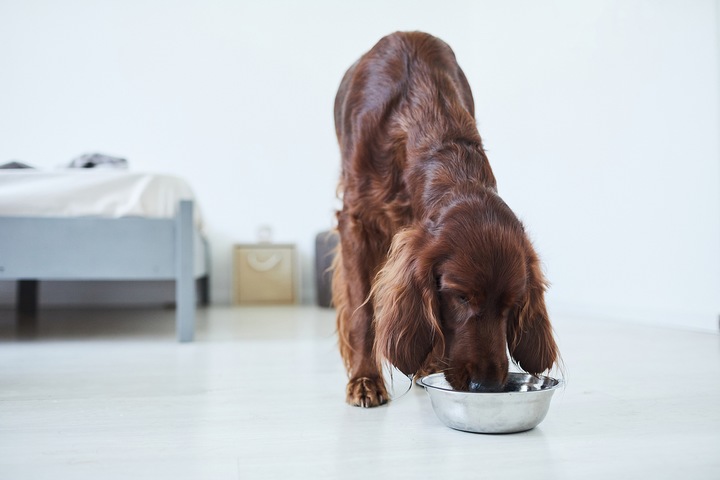
Above all else, a pregnant dog needs a healthy and balanced dog diet. Check with a veterinarian to determine your dog’s additional nutritional requirements. A pregnant dog will eat a little differently than it normally would. They may also require medication in some instances to help keep them healthy and comfortable during the pregnancy.
A pregnant dog should be getting premium adult dog food high in protein, fat, and minerals. Their eating needs will increase to 1.5 times what they normally would consume. A pregnant pet may adjust well to a raw dog food diet. Try not to withhold food unless directed by a veterinarian, as a pregnant dog needs all the help she can get in supplying nutrition to the soon-to-be puppies in her belly.
4. Set aside a secluded space for a pregnant dog.

A pregnant dog will want a quiet, secure place to whelp her pups. A closet or unused bedroom are great options. Have a sturdy box available for the puppies. It should be low and wide, layered inside with newspaper to absorb the fluids released during birth. A dog may return to this private area during the pregnancy to not be bothered, rest, and start nesting. Keep it clean and dry, and don’t let any other animals or children around it.
5. Be forgiving with bad behaviour.
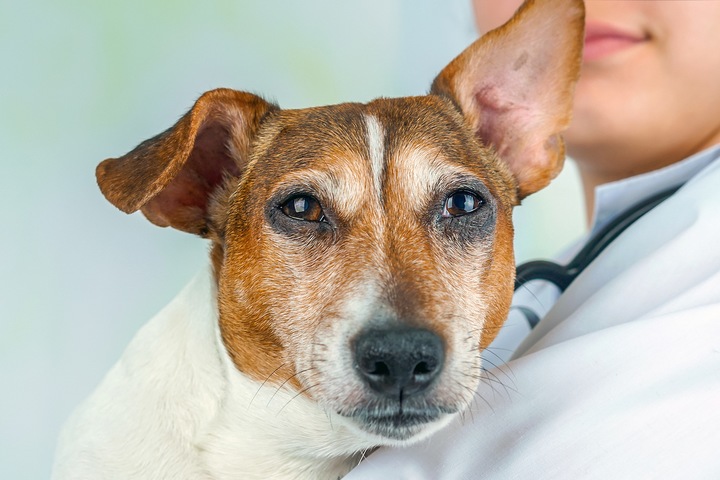
As a pet owner to a pregnant dog, it’s best to be as kind as you can be. Morning sickness is normal. Dogs may start to scratch at the floor as if they’re digging. You may find them start to hoard foods as well. They might be barking more and be more irritable with noise and strangers. An urge to nest and protect presents in pregnant dogs. Do your best to be understanding.
6. Monitor a pregnant dog’s weight for signs.
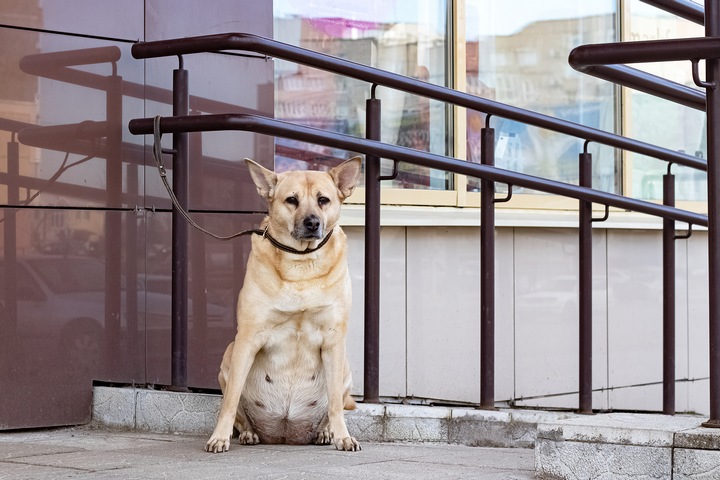
You don’t want a dog to gain or lose excess weight throughout pregnancy. It could potentially lead to delivery complications. Many pet owners measure food portions to help regulate size and weight with this in mind. If a dog seems withdrawn suddenly or loses their appetite altogether, this can signify complications. Consult a vet if this behaviour persists.
7. Take regular walks with a pregnant dog.
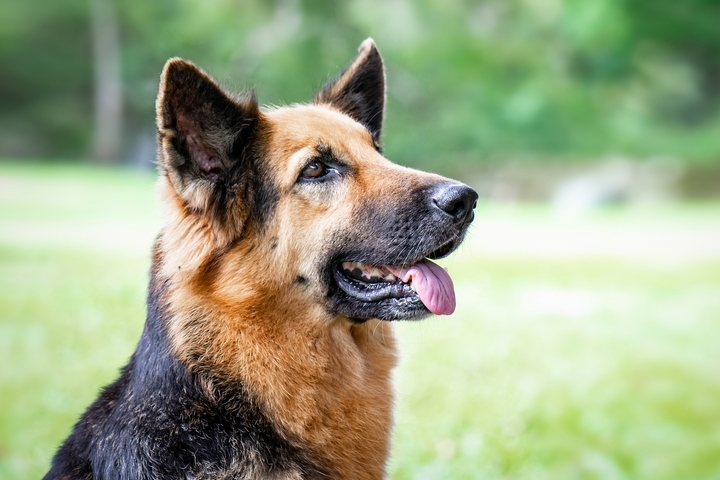
For many dogs, regular exercise can help keep them healthy before labour. A simple game of fetch or keeping up with their daily walking schedule can be important to keeping health and strength up. You don’t want to put them through anything overly strenuous during a dog pregnancy. Most dogs will become less active and even lazy. A simple walk can be enough activity for most.
8. Do not stress out a pregnant dog.

While she’s pregnant, your dog shouldn’t be put through any obedience training or put into stressful situations. This might pause behavioural training, but you can resume all of this following birth.
9. Give a pregnant dog treatments & vaccinations.
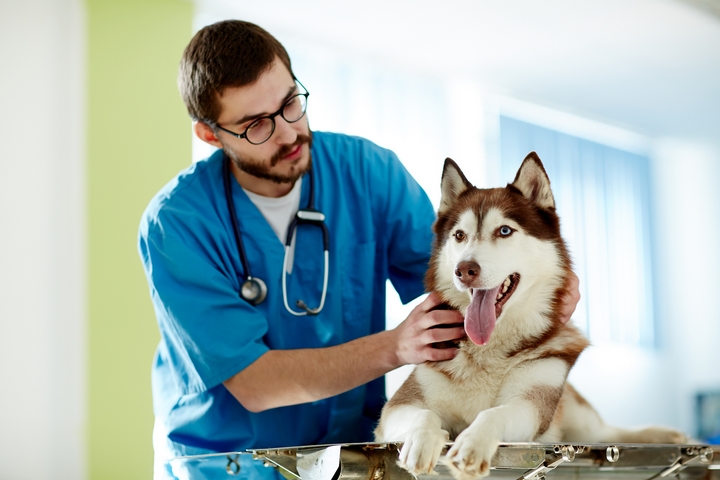
Flea, worm, and parasite vaccinations should not be done at home without a vet there. With roundworm and flea treatments, always consult with a veterinarian on what you should do as exposing puppies to these parasites can cause problems. Still, you also don’t want them exposed to unapproved treatments. Fortunately, some treatments are very safe for pregnant dogs, including heartworm prevention medication. Some roundworm and hookworm treatments are also important for newborn puppies.
10. Separate the pregnant dog from other animals.
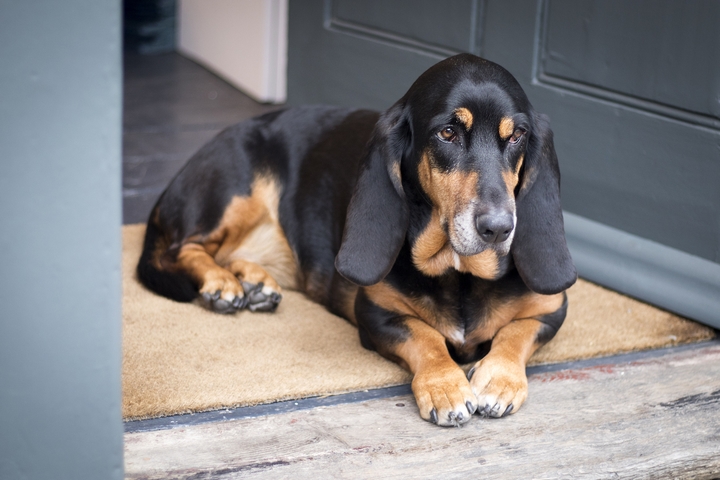
During the last three weeks of a dog’s pregnancy, separate them from other dogs and animals. This period is a vulnerable time for a pregnant dog. They can contract parasites or illnesses impacting her and her puppies. Some serious illnesses, such as canine herpes, can lead to major complications, including stillborn puppies.
